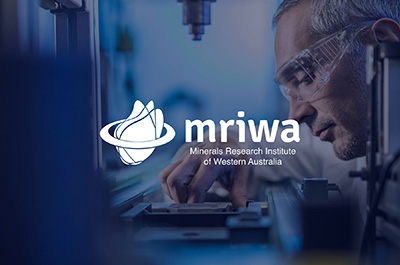Pre-feasibility study into the development of a pilot plant for the adaption of direct lithium extraction
Project Overview
Project Number
Total Grant Value
Program Area
MRIWA Contribution
Project Theme
Project Period
The Challenge
While in abundance, extracting lithium has environmental challenges.
“The problem is for every one tonne of lithium chemical we produce it directly results in 15 tonnes of carbon dioxide,” Associate Professor Razmjou said.
Furthermore, lithium requires large amounts of water, to extract one tonne of lithium from hard rock it requires about 60,000 to 80,000 litres of water and can also poison reservoirs and other water sources.
The new technology will also allow by-products to be recirculated, reducing overall costs. This stage of the project will determine how to improve productivity of the process of lithium extraction.
Proposed Solution
Associate Professor Amir Razmjou and his ECU team of chemical engineers are using membranes, which act as filters that allow the transportation of lithium at low energy. The nanochannels within the membranes are designed to selectively transport lithium from one side to the other leaving impurities behind.
This technology enables the selective filtration of lithium ions under an electric field. The principle is similar to how lithium-ion batteries work, shuttling lithium ions between two electrodes.
A flowsheet will be tested and demonstrated for the process which can be used to demonstrate to existing industrial producers.
Proposed Benefit to WA
Direct Lithium Extraction (DLE) is set to change the future of direct lithium extraction. The future value for this pilot to expand over time from $4 million in the first five years, and up $20 million at the commercialisation stages.
DLE simplifies the existing production of lithium concentrate by removing the requirement for energy intensive processing of the leached concentrates.
The membranes technology use much less energy and has a lower footprint and need for reagents.
The new technology will also allow by-products to be recirculated, reducing overall costs. This stage of the project will determine how to improve productivity of the process of lithium extraction.
Keywords: Membrane, Lithium, Processing, Critical Minerals, Batteries
Similar Projects
Page was last reviewed 11 June 2024

